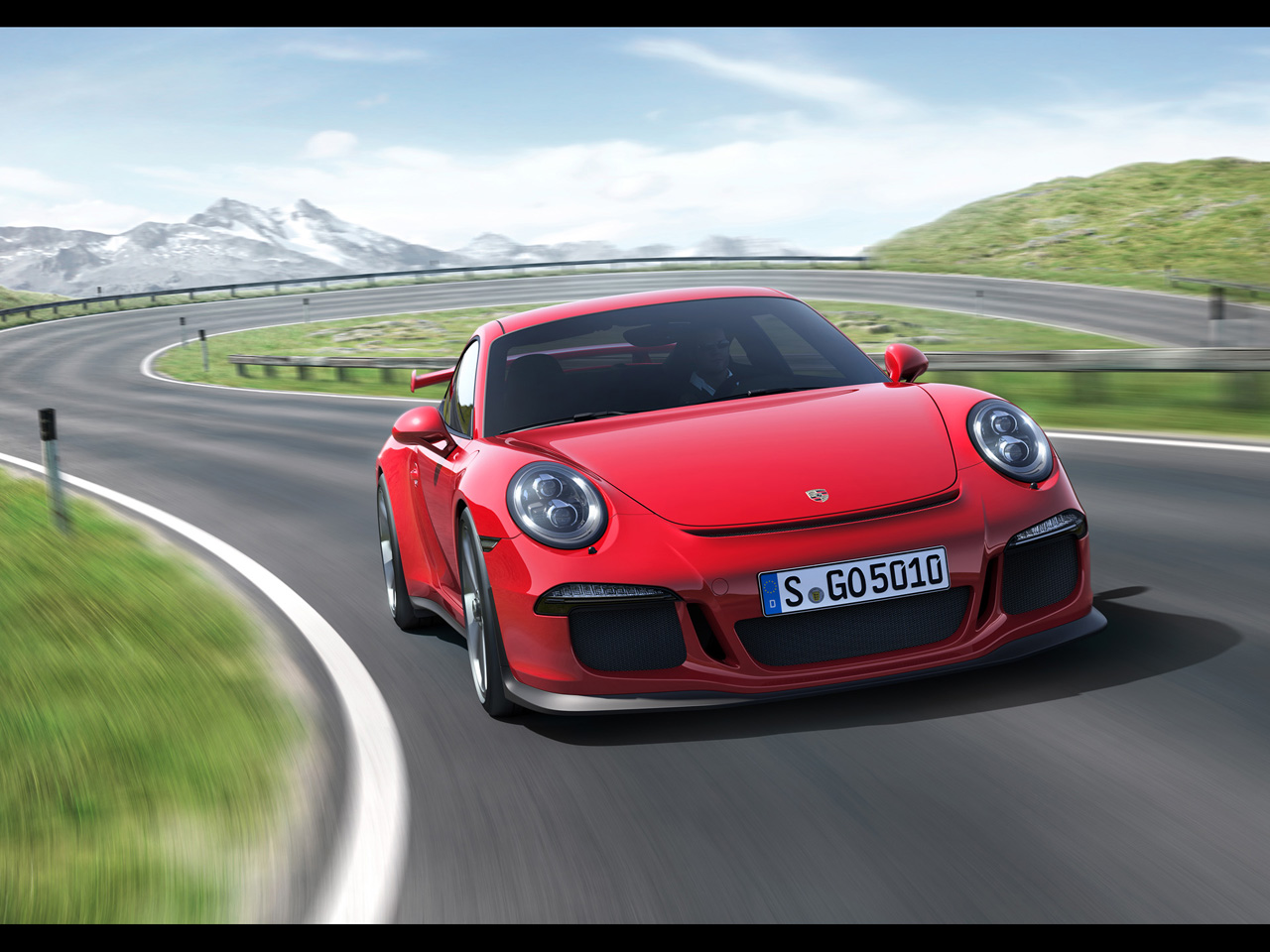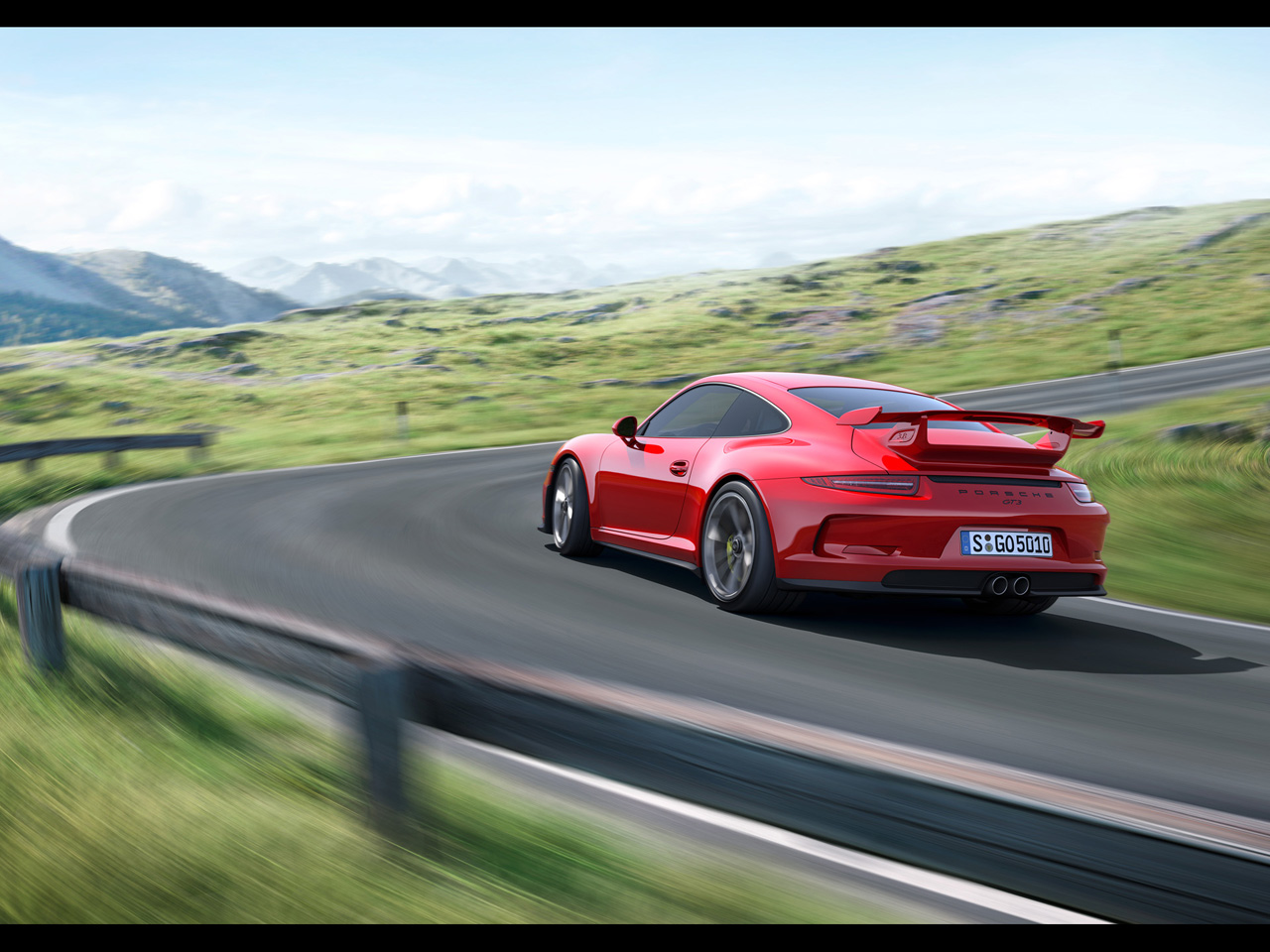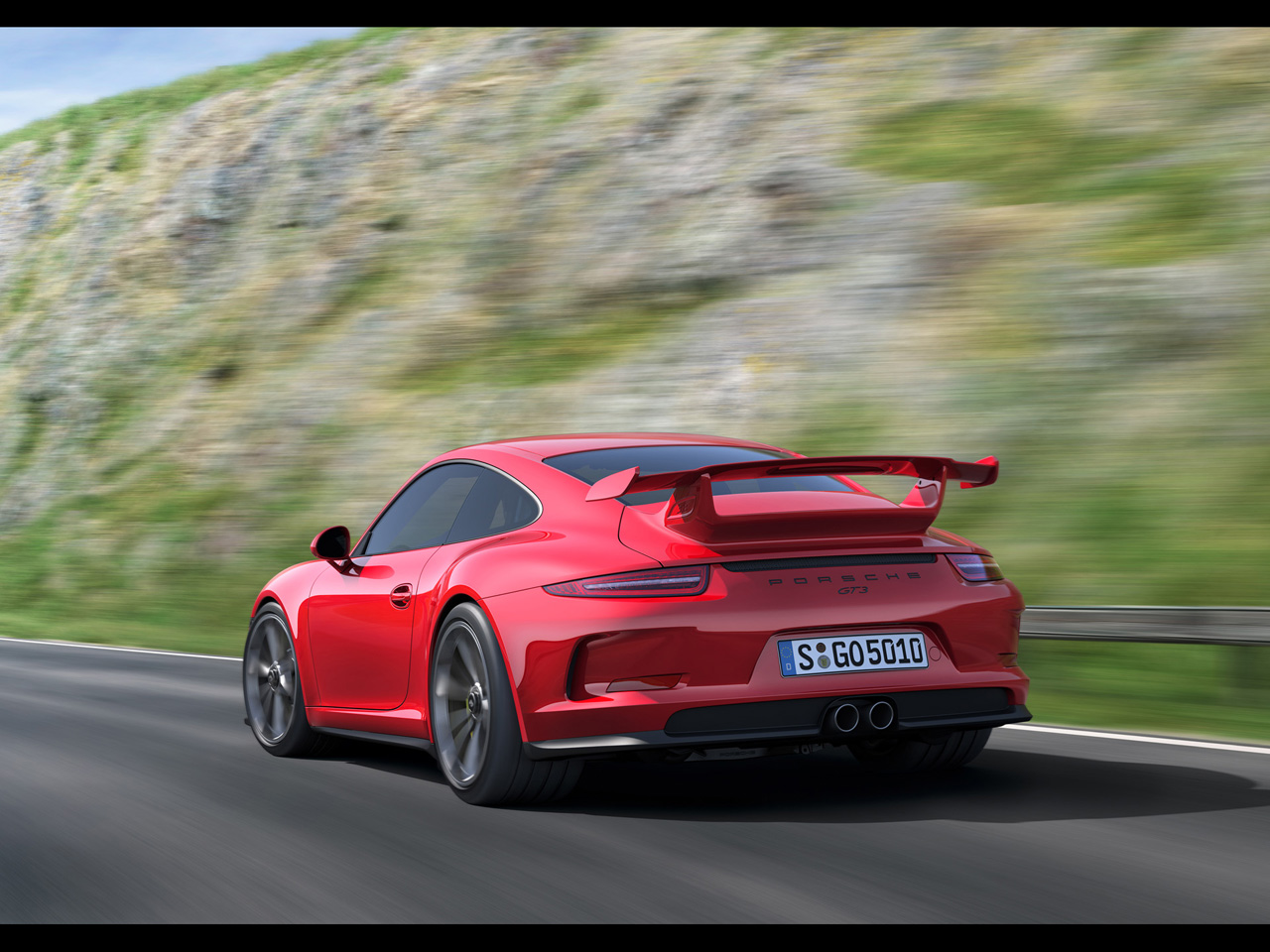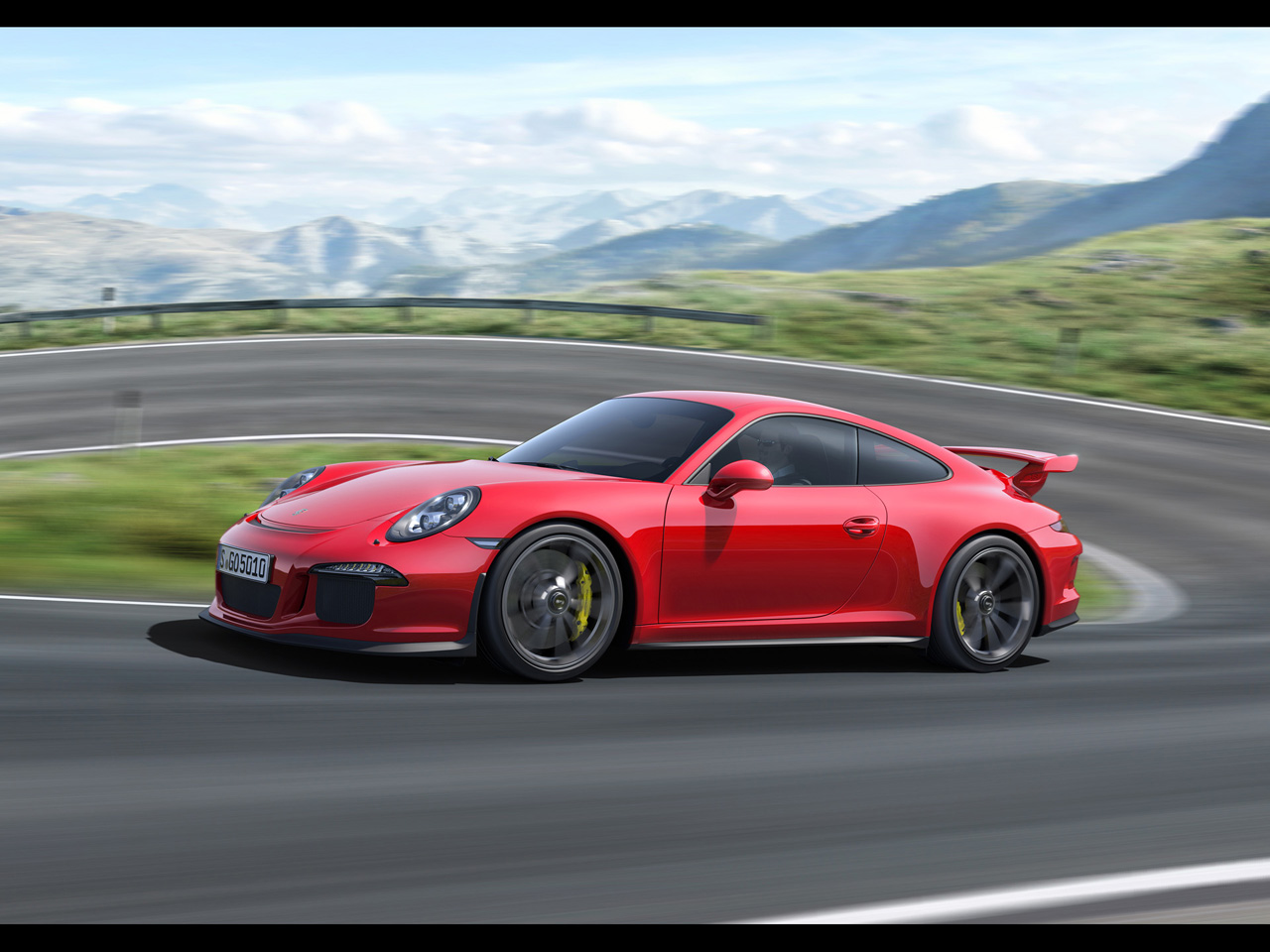2014 Porsche 911 GT3
|
Price |
-- |
Production |
-- | ||
|
Engine |
3.8 liter boxer-6 |
Weight |
-- | ||
|
Aspiration |
natural |
Torque |
-- | ||
|
HP |
475 hp @ 8250 rpm |
HP/Weight |
6.6 lbs per hp | ||
|
HP/Liter |
125 hp per liter |
1/4 mile |
-- | ||
|
0-62 mph |
3.5 seconds |
Top Speed |
-- |
(from Porsche Press Release) Porsche celebrates the 50th anniversary of the 911 with a new GT3
Stuttgart. The sportiest
911 will have its world premiere at the Geneva International Motor
Show: the new Porsche 911 GT3. In the 50th anniversary year of the
911, Porsche is now set to open a new chapter in race track
performance sports cars. The fifth generation of the 911 GT3, a
complete new development, will take the pole position among the
thoroughbred Porsche sports cars with naturally aspirated engines.
Boxer engine and transmission, as well as body and chassis are
completely new and constitute a further development of the 911 GT3
concept with an impressive performance leap. Power: 475 hp. Power to
weight ratio: 3.0 kg/hp. Acceleration from zero to 100 km/h: in 3.5
seconds. Top speed: 315 km/h. Lap time Nürburgring Nordschleife:
under 7:30 minutes. As a technical highlight, it features the first
active rear wheel steering in a production Porsche. As well as the
optional full LED headlights. The new 911 GT3 keeps all the
successful properties of a sports car suitable for racing, with even
more driving dynamics, more sophisticated practicality - and a
highly emotional fun factor.
The powertrain of the new 911 GT3 is composed of a 3.8-liter boxer
engine yielding 475 hp (350 kW) at 8.250 rpm, a Porsche dual-clutch
transmission (PDK) and a high-traction rear-wheel drive. The
six-cylinder engine is based on the same engine as the 911 Carrera
S, although they share only few common parts. All other components,
particularly the crankshaft and valve gear, were specially adapted
or designed for the GT3. For instance, Porsche designed titanium
connecting rods and forged pistons. The basic modifications set the
stage for an extremely high-speed engine that reaches up to 9.000
rpm. The Porsche dual-clutch transmission was also specially
developed; the characteristics are directly based on a sequential
gearbox from motor racing, thereby providing further performance and
dynamics advantages to the driver.
For the first time, Porsche is using active rear wheel steering in
order to achieve even higher precision and lateral dynamics.
Depending on the speed, it steers in the same or opposite direction
of the front wheels, improving stability and agility. Other new
modules improving driving dynamics are the electronically
controlled, fully variable rear differential lock, and the dynamic
engine mounts. The newly developed all-aluminium chassis can still
be adjusted by height, toe and camber. Contact with the road is made
by the new 20-inch forged alloy wheels with central locking.
The 911 GT3 is based on the light, yet stuff body of the current
generation 911 Carrera in hybrid steel-aluminium construction,
however, it comes with independent front and rear parts. In
addition, the 911 GT3 is 44 millimetres wider than a 911 Carrera S
in the area of the rear axle. Another clear recognition feature is
again the large, fixed rear wing. This makes a decisive contribution
to the exemplary aerodynamics of the new 911 GT3, which combines low
air resistance with even more power.
As a result, the new 911 GT3 sets new performance records. At full
acceleration from standstill, the 100 km/h mark is breached after
3.5 seconds, and 200 km/h are reached in less than twelve seconds.
The top speed is 315 km/h in the seventh, top gear of the completely
newly adapted PDK transmission. The lap time on the Nürburgring
Nordschleife, which the new 911 GT3 manages in under 7:30 minutes,
is even more impressive.
The new Porsche 911 GT3 will be launched on the market from August
2013 on, and will cost in Germany 137,303 Euro including VAT and
national specifications.



